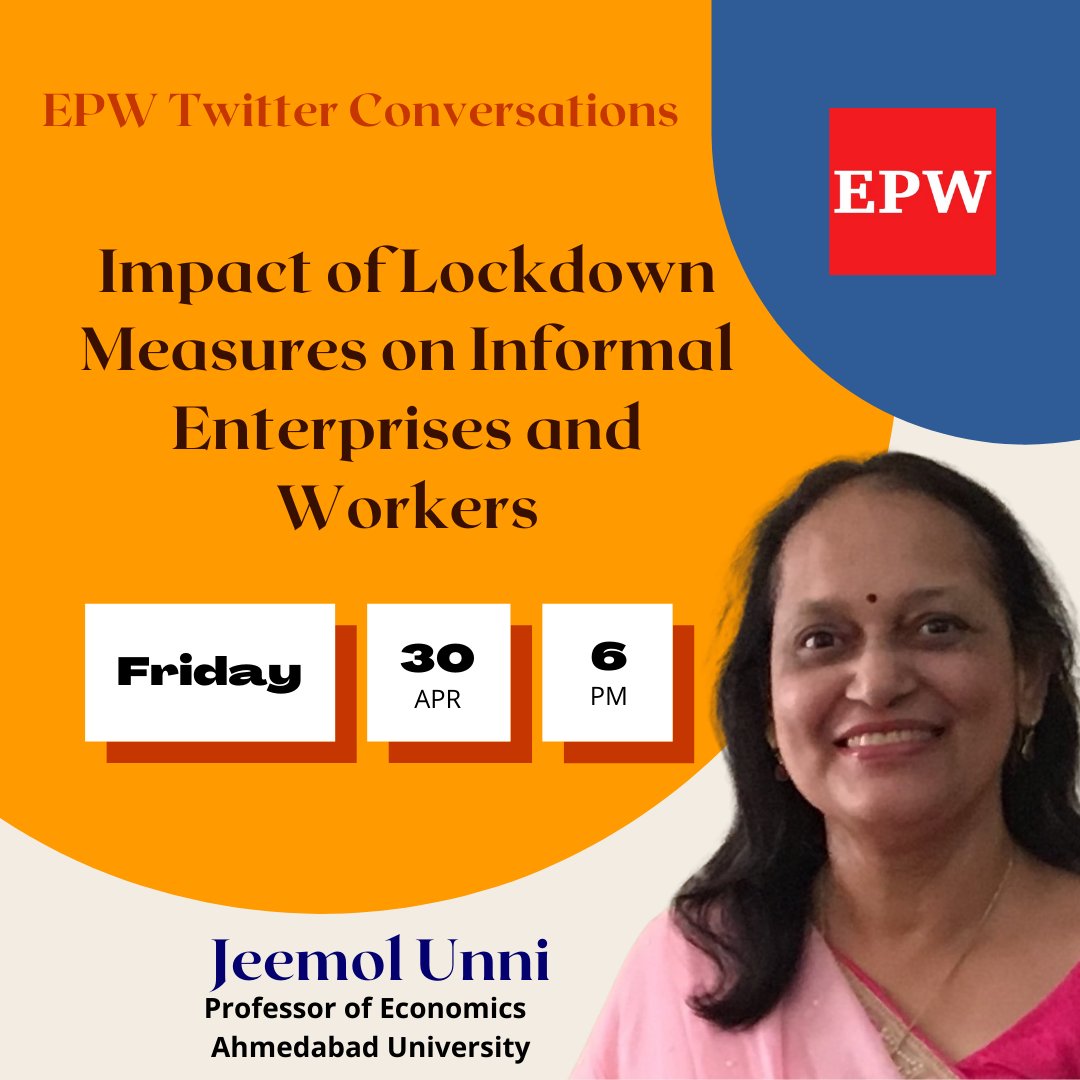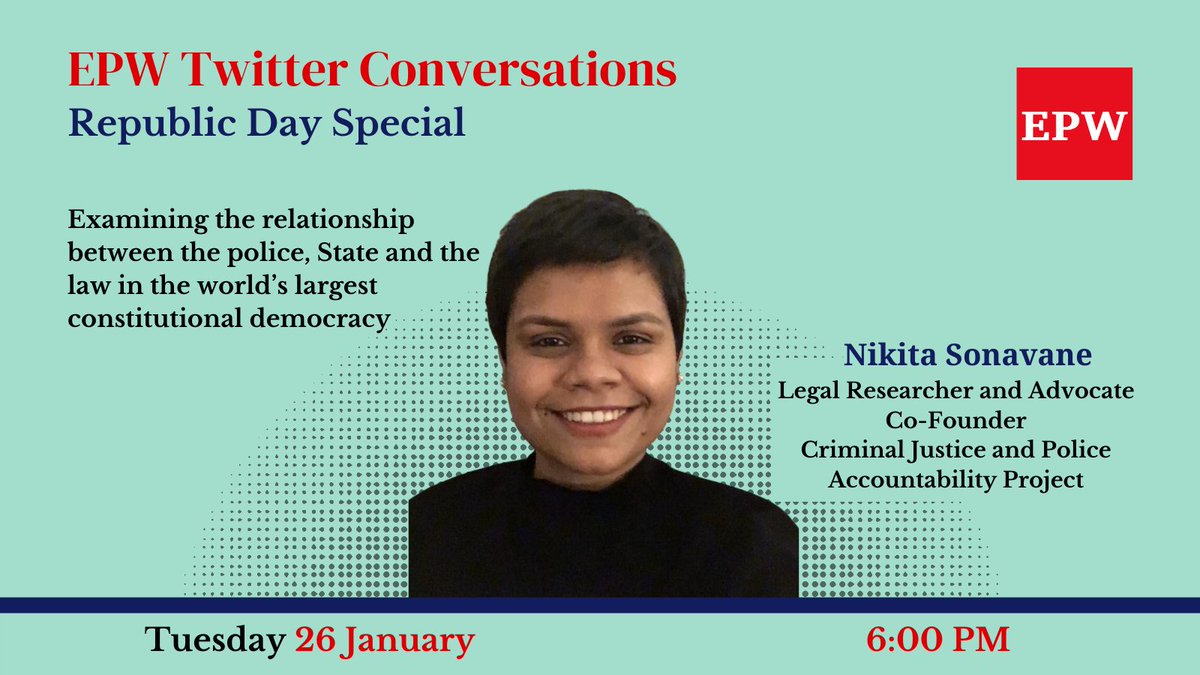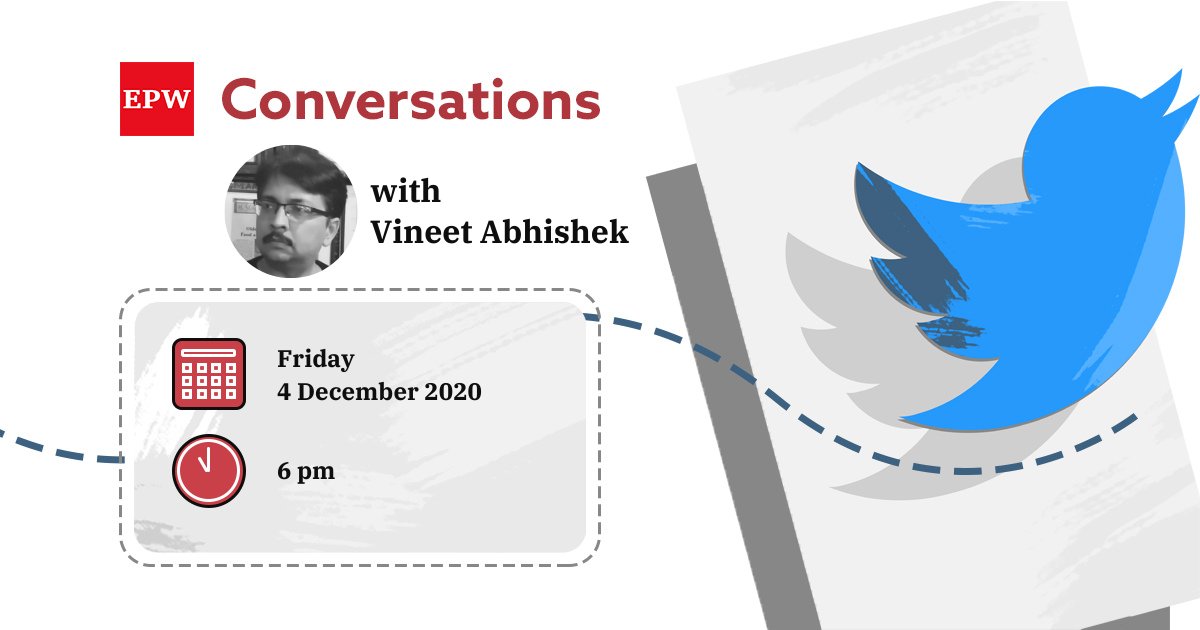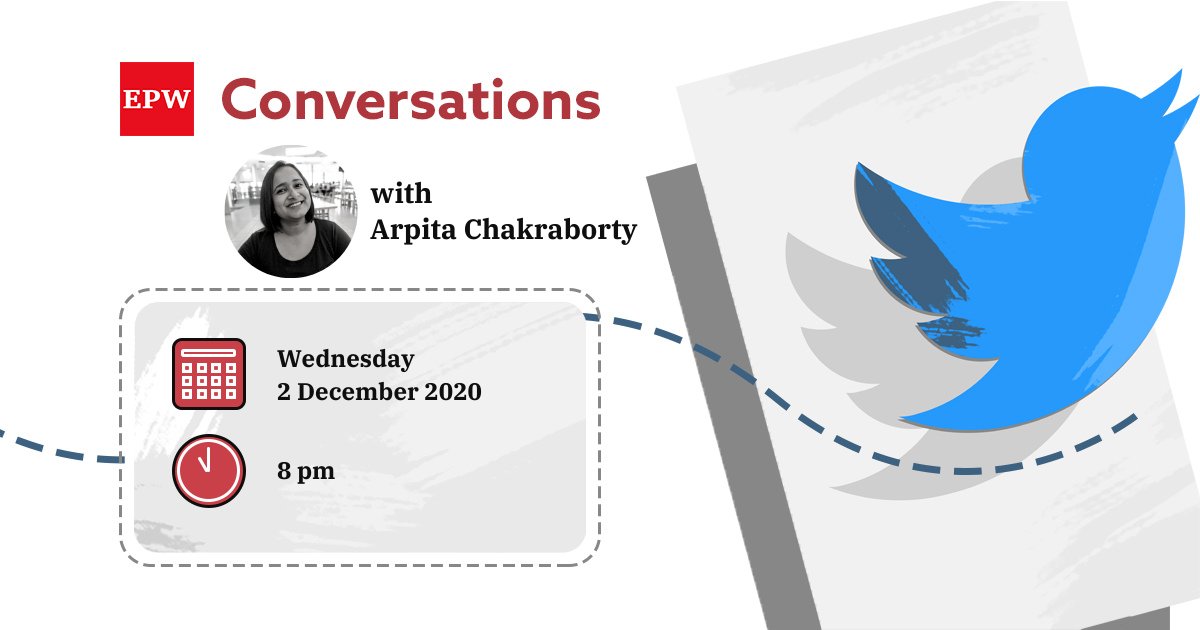
The #COVID19 pandemic has triggered a global crisis, but its impact is not shared equally.
Social hierarchies, inequalities, and injustice reproduced during the pandemic have added to existing challenges faced by vulnerable categories of people. #Thread
Social hierarchies, inequalities, and injustice reproduced during the pandemic have added to existing challenges faced by vulnerable categories of people. #Thread

The fear of contagion ignited by #Covid19 has renewed old associations between dirt, disease, and particular communities.
@kanthiswaroop and Joel Lee discuss society's reaction to sanitation workers during the pandemic.
epw.in/journal/2021/1…
@kanthiswaroop and Joel Lee discuss society's reaction to sanitation workers during the pandemic.
epw.in/journal/2021/1…
The #COVID19 lockdown has disturbed the lives and livelihoods of tribals and forest dwellers.
Minaketan Behera and Preksha Dassani emphasise on food security and protection mechanisms to help the communities.
epw.in/journal/2021/1…
Minaketan Behera and Preksha Dassani emphasise on food security and protection mechanisms to help the communities.
epw.in/journal/2021/1…
ASHA workers' contribution as frontline workers during the pandemic intensified the social stigma they face.
This editorial analyses the workers' struggle against discrimination and their demand for due credit and recognition.
epw.in/journal/2021/1…
This editorial analyses the workers' struggle against discrimination and their demand for due credit and recognition.
epw.in/journal/2021/1…
.@Shiney_JNU examines how the #COVID19 induced lockdown worsened the gendered division of domestic work and how women workers in the informal sector do not receive the minimum wages specified by the government.
epw.in/journal/2020/3…
epw.in/journal/2020/3…
.@sakie339 and Jerald Dsouza explore how #COVID19 guidelines for healthcare staff leave out predominantly Dalit workers who involved in handling hospital waste and dead bodies.
epw.in/journal/2021/1…
epw.in/journal/2021/1…
.@JeemolUnni questions the lockdown relief measures and the impact on segments of the economy that constitute the bottom of the labour hierarchy, namely microenterprise owners, construction workers, street vendors, and domestic workers.
epw.in/engage/article…
epw.in/engage/article…
S Irudaya Rajan examines the genesis of the #COVID19 led migrant workers' crisis and the shortcomings of the response from the centre and state governments.
epw.in/journal/2020/4…
epw.in/journal/2020/4…
Srei Chanda and T V Sekher shed light on how the #COVID19 pandemic and lockdowns have severely curtailed the mobility of persons with disabilities and restricted their ability to seek basic necessities, healthcare, and assistance.
epw.in/journal/2020/3…
epw.in/journal/2020/3…
How do persons with disabilities carry on with daily activities if they are denied access to caregivers?
Anita Ghai questions the way discourses around gender, disability, and pandemics are constructed.
epw.in/engage/article…
Anita Ghai questions the way discourses around gender, disability, and pandemics are constructed.
epw.in/engage/article…
"Social distancing and the lockdown have left sex workers across the country in poverty and hunger."
@priyanka_iitp and Chhandita Das discuss the condition of sex workers in India amidst the #COVID19 lockdown.
epw.in/journal/2020/3…
@priyanka_iitp and Chhandita Das discuss the condition of sex workers in India amidst the #COVID19 lockdown.
epw.in/journal/2020/3…
What does #SocialDistancing mean to a sex worker whose very livelihood depends on human contact?
The article examines how the pandemic has adversely affected the physical and mental well-being of sex workers and those dependent on them.
epw.in/engage/article…
The article examines how the pandemic has adversely affected the physical and mental well-being of sex workers and those dependent on them.
epw.in/engage/article…
The pandemic worsened the existing employment crisis in the country; wherein there were about 30 million unemployed persons as per the Periodic Labour Force Survey, 2017–18.
Our editorial explores the economic impact of the pandemic on the service sector.
epw.in/journal/2020/2…
Our editorial explores the economic impact of the pandemic on the service sector.
epw.in/journal/2020/2…
Our #ReadingList highlights the alarming rise of domestic violence complaints during the 2020 #COVID19 lockdown.
We also examine the laws and redressal mechanisms available to women who are subjected to domestic violence. epw.in/engage/article…
We also examine the laws and redressal mechanisms available to women who are subjected to domestic violence. epw.in/engage/article…
How does a member of the queer community #StaySafe when they were denied the most basic medical care even before the pandemic?
@Ofeeeliaaaa and @SamiraNadkarni articulate queer vulnerability and how the pandemic adds to existing challenges.
epw.in/engage/article…
@Ofeeeliaaaa and @SamiraNadkarni articulate queer vulnerability and how the pandemic adds to existing challenges.
epw.in/engage/article…
• • •
Missing some Tweet in this thread? You can try to
force a refresh








